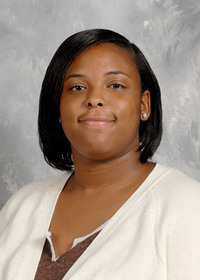Information Possibly Outdated
The information presented on this page was originally released on March 10, 2003. It may not be outdated, but please search our site for more current information. If you plan to quote or reference this information in a publication, please check with the Extension specialist or author before proceeding.
Programs help students examine medical careers
MISSISSIPPI STATE -- Mississippi State University and the state's community colleges are teaming up to help ensure the presence of health-care providers throughout the state in the years to come.
As Mississippi approaches a critical need for medical professionals, MSU is hosting an intense summer program that aims to entice high school juniors into a career as family medicine physicians. A related program offered at Hinds, Meridian and the Mississippi Gulf Coast community colleges will target future nurses and allied health professionals.
With one out of five Mississippi physicians over the age of 60, MSU's Rural Medical Scholars program goal is to identify the state's future primary care doctors and help them become members of the medical school class of 2012. The Rural Health Explorers program will help students with a more general interest in health care consider a number of career possibilities.
"We need to develop a pipeline of future medical providers," said Bonnie Carew, rural health policy coordinator for MSU's Extension Service. "As the state's population continues to grow, the concern for adequate health care increases as well."
Both programs are sponsored by the Rural Health Corps, a joint effort of MSU's Extension Service and the state's 15 community and junior colleges. The Rural Medical Scholars program is in its sixth year. Thirty students entering their senior year of high school can attend the six-week program at MSU. Students with an ACT composite score of at least 25 will take two pre-med courses -- zoology and college algebra -- and observe doctors at practice throughout the program.
The Explorers program features courses in anatomy and physiology and career exploration. Each of the three community colleges will host 25 Explorers who must have a composite score of at least 18 on the ACT and be entering their senior year of high school.
The selected Scholars and Explorers will receive tuition, housing and meals during the programs. A $35 registration fee will be required. Each of the state's community and junior colleges will select and sponsor candidates from its district.
Applications are due by April 18. Contact a high school guidance counselor or the nearest community college for more information or an application. Applications and program details are available online at http://www.RMS.msucares.com.



